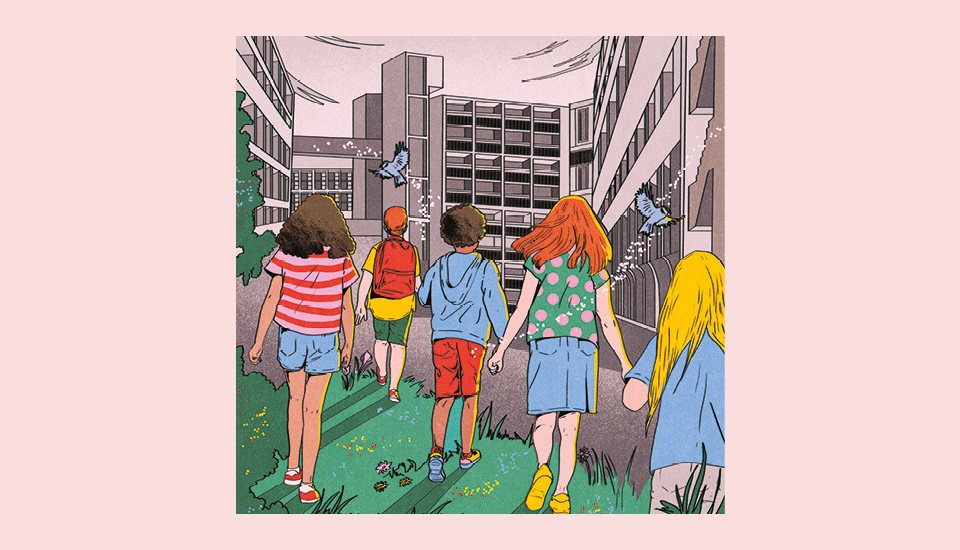Why welcoming frustration and failure may be the key to establishing successful lifelong learning practices
“Why am I such a bone-head?”
“If I feel this confused, I must be doing it wrong.”
“I’m out of my depth and destined to fail.”
If you are like me, you may find thoughts like these running through your head as you embark on learning a new skill.
A sense of trepidation is natural, but many of us hold needlessly negative attitudes toward our capabilities; even the slightest feeling of frustration can spark a spiral of defeatist thinking. These pessimistic attitudes not only destroy our motivation, they can reduce our mental resources through a kind of self-fulfilling prophecy. The result is that we no longer think as sharply as we are capable of, and the material itself is much harder to remember.
Fortunately, the latest research shows that we can remove this self-imposed barrier by reframing our attitudes around the challenges that we face and our capacity to overcome them. By embracing frustration, rather than fearing it, we can all learn a lot more efficiently.
A healthier attitude to learning will be essential in the years ahead. Rapid technological change has meant that people’s knowledge in many jobs must be updated at an ever-increasing pace. The economic upheaval of the pandemic, meanwhile, has pushed numerous people to look for alternative ways of making a living, many of which require the acquisition of new skills.
A change of mindset may not be able to transform you into an instant genius, but it can at least put you on the right path to more efficient and effective learning, so that you can make the most of your own unique potential.
Professor Carol Dweck at Stanford University laid the foundations for our understanding of expectation effects in learning with her ground-breaking research on the fixed and growth mindsets. If you are not already familiar with this concept, consider a skill that you would like to learn, and then read the following two statements: ‘Your abilities are something very basic about you that you cannot change very much’; and ‘No matter how much ability you have, you can always change it quite a bit’.
People who agree more with the first statement are said to have the fixed mindset: they tend to see their skills as being an innate part of them. The people who agree more with the second statement are said to have the growth mindset: they believe in the possibility of incremental change.
Over a series of experiments, Dweck has shown that people with the growth mindset tend to have greater perseverance and are more willing to take on new challenges that might stretch their abilities. Those with the fixed mindset, in contrast, often struggle to confront problems in learning. They lose motivation as soon as they have a disappointing result and tend to shy away from challenges that fall outside of their comfort zone, which means that they are less likely to improve their skills in the long term.
Importantly, Dweck found that you can encourage people to adopt a growth mindset by teaching them about the brain’s ‘neuroplasticity’: its capacity to rewire and adapt to new challenges. That seems to improve learning in the short term, and if the message is consistently reinforced over a longer period, such as the academic year, it can help a sizeable number of students to get better grades.
Following Dweck’s research, many psychologists have started to look at the other ways our beliefs might shape our cognitive abilities and potential for learning. Much of this work has focused on our perceptions of frustration and confusion and the meaning that we assign to these feelings.
It might seem natural to dislike frustration and confusion: these feelings may suggest there is something wrong with your brain that simply will not allow the new knowledge or skill to sink in. Seen from another perspective, however, frustration and confusion can be interpreted as signs that your brain is working hard to arrive at a deep understanding and build a strong memory. Much like the sweat we build up in a physical workout, it is the price we pay for intellectual exertion.
In 2012, researchers at the University of Poitiers in France hypothesised that anxieties about frustration and difficulty could take up mental resources that you might otherwise devote to the required tasks; it is difficult to concentrate, after all, while telling yourself that you are stupid. By shifting to the idea that frustration is productive, you may remove that anxiety and increase your cognitive ability.
In their first experiment, the researchers gave a group of participants three sets of extremely difficult anagrams to solve, a task designed to trigger frustration. Half the participants were told to see those feelings as a sign that learning was occurring, while others were simply left to make their own interpretations. Afterwards, participants took a test of ‘working memory’, in which they listened to various sentences and were then asked to list the last words of each one. This is a challenging task that requires substantial focus. Overall, the participants who had reframed their feelings of frustration proved to have a significantly larger working memory span than those who had not.
Working memory is a key mental resource that allows the brain to process complex information, meaning that the altered mindset could have widespread benefits for many kinds of cognitive tasks.
To test whether this was the case, the researchers conducted a second study that replaced the working memory test with an exercise in reading comprehension. As expected, the people who had reframed their frustration as a sign of learning performed significantly better than those who had not received coaching around their feelings of frustration.
Your attitudes to intellectual challenges, and the feelings that they evoke, may even influence your overall intelligence, according to a study by Daphna Oyserman at the University of Southern California, and colleagues, published in 2018. To prime different mindsets, the researchers asked students to read and rate a series of statements, such as: ‘Some school tasks feel easy and some feel difficult. My gut tells me that if it feels difficult, it is important for me.’ Or: ‘Some school tasks feel easy and some feel difficult. My gut tells me that if it feels difficult, it is impossible for me.’
Overall, the participants who had been primed with the idea that difficulty can be a sign of importance performed significantly better on a non-verbal IQ test called Raven’s Progressive Matrices. Besides increasing our mental resources, a reappraisal of frustration – and its potential benefits – could help us to choose more effective learning strategies. A huge body of research has shown that we tend to retain more information when we create ‘desirable difficulties’. For example, you will learn more from a nuanced textbook, with long detailed passages, than one that presents the facts with pretty graphics and bite-sized chunks of information, yet the aversion to potential frustration means that few learners would actively choose the more complex text.
Similarly, people learn more from applying what they have learnt in new and unfamiliar contexts. For example, someone studying a language will benefit from having ‘language exchange’ conversations with native speakers. But the fear of frustration means that many avoid those valuable learning opportunities even if this prevents them from progressing more quickly.
Together, the combined result of these effects can have significant long-term consequences. Peter Meindl at the University of Pennsylvania and colleagues recently measured high-school students’ attitudes to frustration and followed their academic achievements over two years. The researchers found that students’ ability to tolerate frustration not only predicted their grade point averages and standardised test scores in maths, reading and science in their final years at school, it also helped to predict their progress when they moved on to university.
In my own life, I found that it took a little practice to readjust my attitudes to frustration as I embark on the learning of new skills. In general, I would advise that you start slowly, with small steps – rather than giant leaps – out of your comfort zone and use each new challenge as an opportunity to question the negative assumptions about your abilities. With time, you will see that the slight discomfort is evidence that you are exercising and strengthening your mind. Far from showing incompetence, it is propelling you towards your goals.
David Robson is an award-winning science writer and author of 'The Expectation Effect: How Your Mindset Can Transform Your Life'.
Follow David Robson on Twitter here: @d_a_robson
This article first appeared in the RSA Journal Issue 1 2022.
Related articles
-
Young at heart
Journal
Jonathan Prosser
Becoming a nation with children at its centre in 10 courageous steps.
-
Open RSA knowledge standards
Blog
Alessandra Tombazzi Tom Kenyon
After investigating ‘knowledge commons’, we're introducing our open RSA standards and what they mean for our practice, products and processes.
-
Worlds apart
Comment
Frank Gaffikin
We are at an inflexion point as a species with an increasing need for collaborative responses to the global crises we face.




Be the first to write a comment
Comments
Please login to post a comment or reply
Don't have an account? Click here to register.